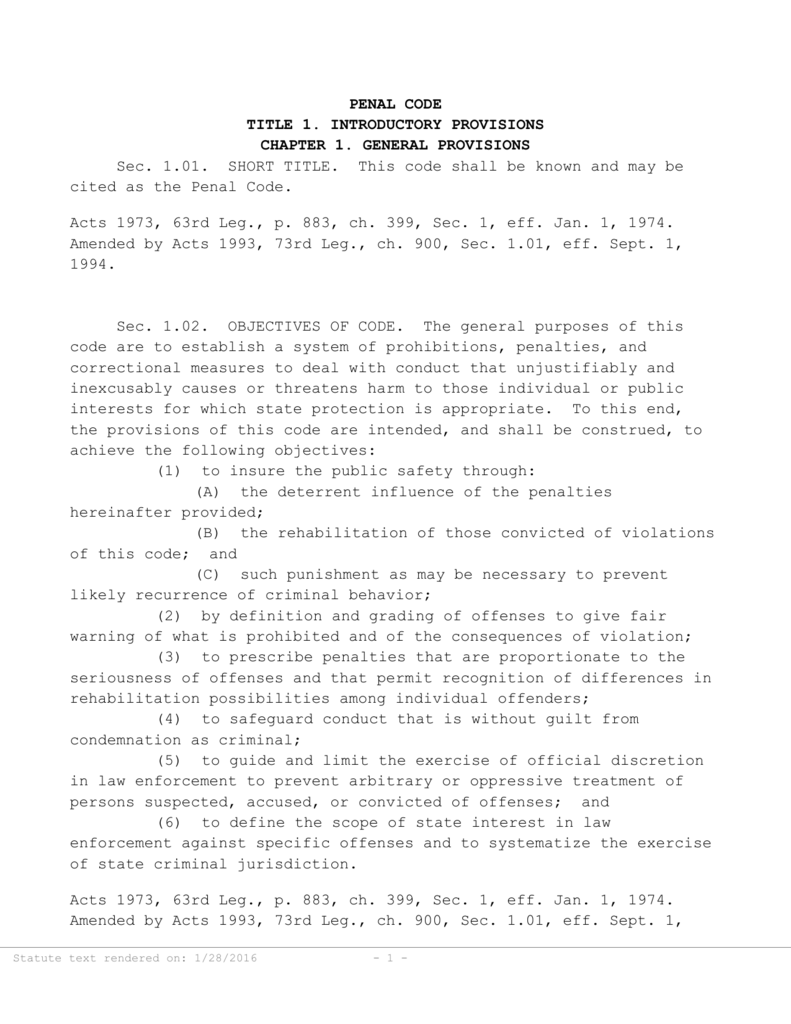Gambling Promotion Texas Penal Code
O robbery, as defined by §29.02, Texas Penal Code, o aggravated robbery, as defined by §29.03, Texas Penal Code, o unlawfully carrying a weapon, as defined by §46.02, Texas Penal Code, o murder, as defined by §19.02, Texas Penal Code, o capital murder, as defined by §19.03, Texas Penal Code. Chapter 125 – Common Nuisances. 2002, and the State Lottery Act, see TEX. GOV’ T CODE ANN. 466 (Vernon 1998 & Supp. Consistent with article III, section 47(a) of the Texas Constitution, chapter 47 of the Penal Code prohibits gambling and gambling related activities, including the promotion of a “lottery.”. Gambling Promotion-Operates or participates in the earnings of a gambling place-Engages in bookmaking. Texas Penal Code for TCLEOSE. Texas Penal Code 1-21.
| § 47.01 | Definitions |
| § 47.02 | Gambling |
| § 47.03 | Gambling Promotion |
| § 47.04 | Keeping a Gambling Place |
| § 47.05 | Communicating Gambling Information |
| § 47.06 | Possession of Gambling Device, Equipment, or Paraphernalia |
| § 47.07 | Evidence |
| § 47.08 | Testimonial Immunity |
| § 47.09 | Other Defenses |
| § 47.10 | American Documentation of Vessel Required |
| § 47.11 | Deposits in Certain Accounts Not Consideration |
Terms Used In Texas Penal Code Chapter 47
Gambling Promotion Texas Penal Code 2020

Gambling Promotion Texas Penal Code
- Act: means a bodily movement, whether voluntary or involuntary, and includes speech. See Texas Penal Code 1.07
- Actor: means a person whose criminal responsibility is in issue in a criminal action. See Texas Penal Code 1.07
- Agency: includes authority, board, bureau, commission, committee, council, department, district, division, and office. See Texas Penal Code 1.07
- Another: means a person other than the actor. See Texas Penal Code 1.07
- Benefit: means anything reasonably regarded as economic gain or advantage, including benefit to any other person in whose welfare the beneficiary is interested. See Texas Penal Code 1.07
- Conduct: means an act or omission and its accompanying mental state. See Texas Penal Code 1.07
- Conviction: A judgement of guilt against a criminal defendant.
- Evidence: Information presented in testimony or in documents that is used to persuade the fact finder (judge or jury) to decide the case for one side or the other.
- Government: means :
(A) the state;
(B) a county, municipality, or political subdivision of the state; or
(C) any branch or agency of the state, a county, municipality, or political subdivision. See Texas Penal Code 1.07 - Guardian: A person legally empowered and charged with the duty of taking care of and managing the property of another person who because of age, intellect, or health, is incapable of managing his (her) own affairs.
- Justice: when applied to a magistrate, means justice of the peace. See Texas Government Code 312.011
- Law: means the constitution or a statute of this state or of the United States, a written opinion of a court of record, a municipal ordinance, an order of a county commissioners court, or a rule authorized by and lawfully adopted under a statute. See Texas Penal Code 1.07
- Misdemeanor: means an offense so designated by law or punishable by fine, by confinement in jail, or by both fine and confinement in jail. See Texas Penal Code 1.07
- Person: means an individual or a corporation, association, limited liability company, or other entity or organization governed by the Business Organizations Code. See Texas Penal Code 1.07
- Possession: means actual care, custody, control, or management. See Texas Penal Code 1.07
- Rule: includes regulation. See Texas Government Code 311.005
- Subpoena: A command to a witness to appear and give testimony.
- Testify: Answer questions in court.
- Testimony: Evidence presented orally by witnesses during trials or before grand juries.
- United States: includes a department, bureau, or other agency of the United States of America. See Texas Government Code 311.005
- Venue: The geographical location in which a case is tried.
- Ward: means a person for whom a guardian has been appointed. See Texas Estates Code 22.033